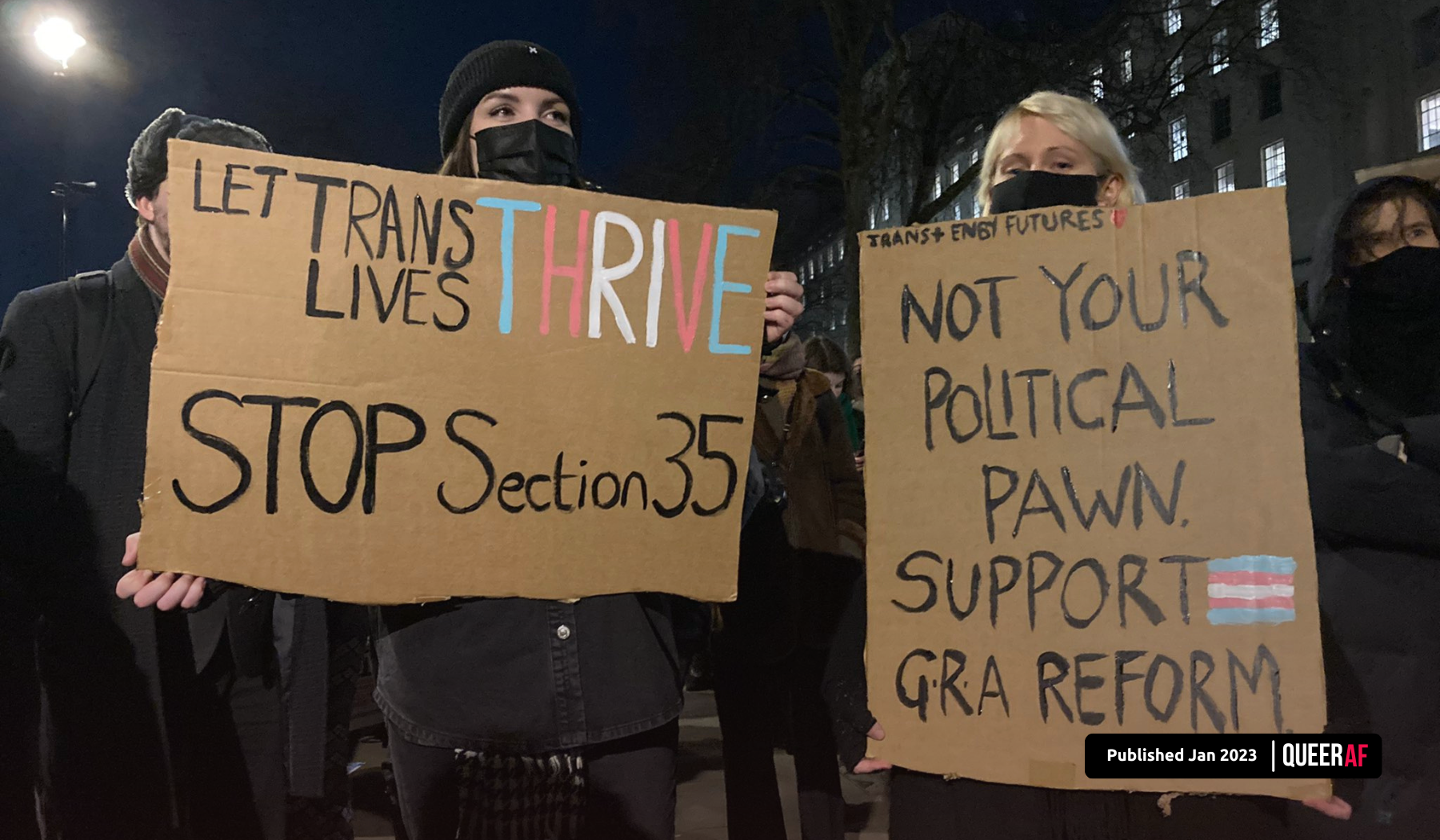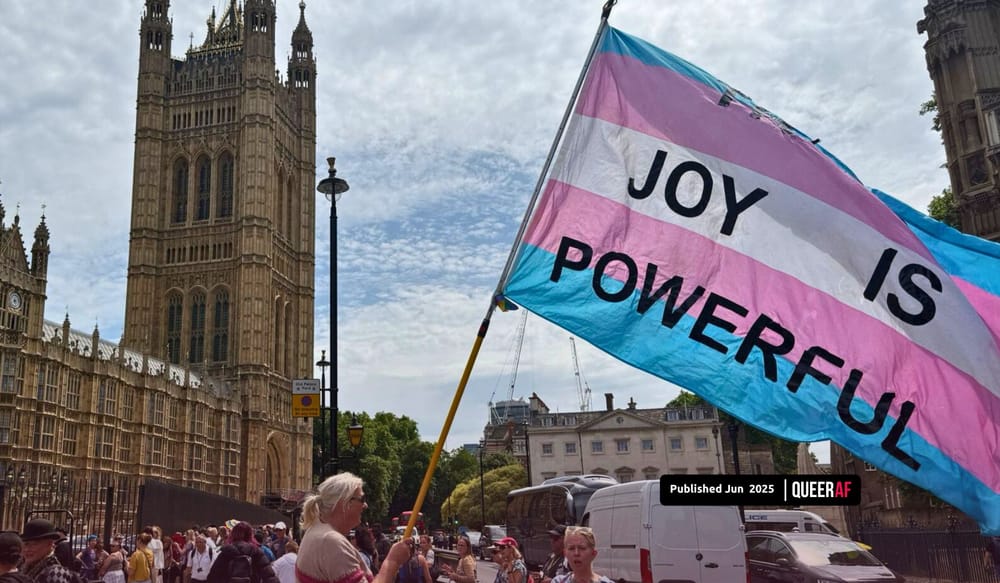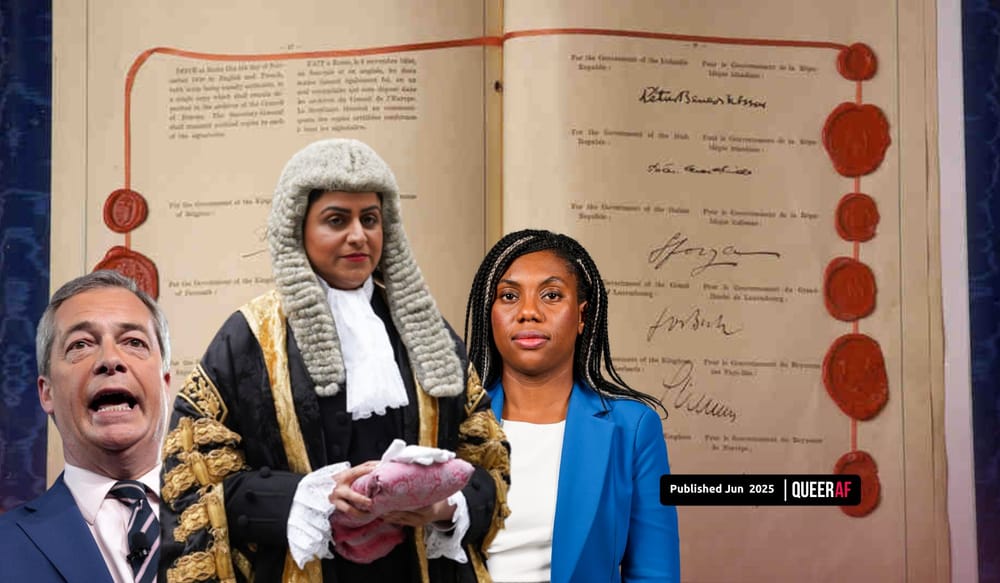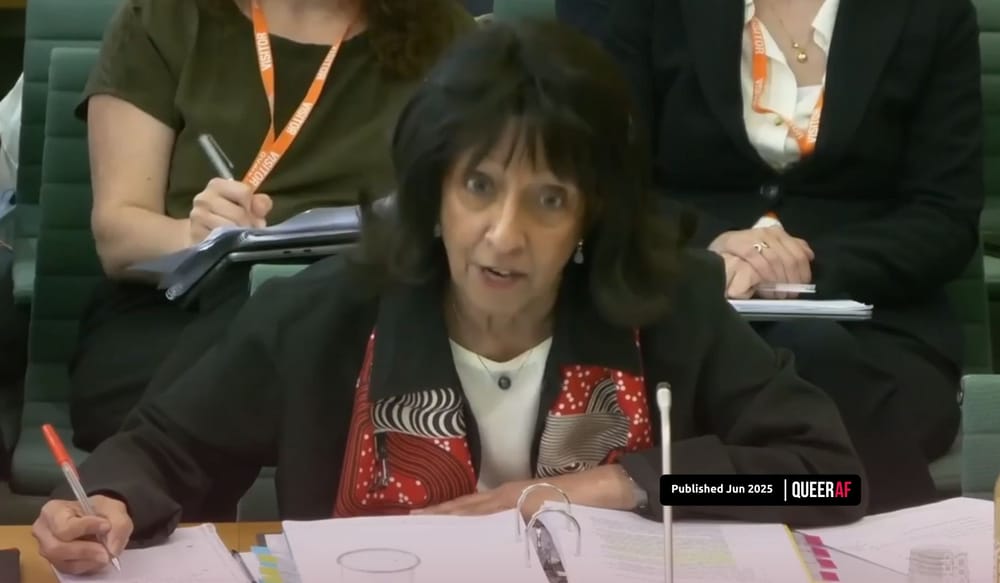TL;DR: In an unprecedented move, the Westminster government vetoed a bill voted through the Scottish parliament. The Gender Recognition Reform (Scotland) Bill would make it easier for trans Scots to get a Gender Recognition Certificate (GRC). It’s a blatant use of trans lives as a political football.
Scottish Minister Alister Jack vetoed the Gender Recognition Reform (Scotland) Bill on Monday by exercising Section 35 of the Scotland Act. It’s the first use of this power since the introduction of the Act in 1998 - Guardian
The Bill was passed by Holyrood last month by 86 votes to 39, after almost six years of debate and amendments.
The UK government published a list of reasons for the veto, citing concerns about the Bill’s interaction with the UK-wide Equality Act (2010) and potential effects on issues such as equal pay for women and single-sex spaces - gov.uk
Scottish First Minister Nicola Sturgeon described the veto as “an outrage” insisting that the Scottish government will defend the Bill in the courts. She said the UK government was acting because “it sees an opportunity to stoke a culture war” - BBC
LGBTQIA+ organisations expressed frustration and disappointment at the decision. Scottish Trans “condemned” the veto in a statement, calling it “unacceptable.” Stonewall said in a press release that “These are not the actions of a government that can stand on the international stage as a credible defender of LGBTQ+ rights” - Stonewall
The leadership of UK Labour have faced criticism for failing to object to the government’s veto, even though Scottish Labour supported the Bill. 11 Labour MPs rebelled against a request to abstain from a parliamentary vote on Tuesday that ‘noted’ the extraordinary use of Section 35 - PinkNews
Thatcher famously went to war with the Unions and introduced section 28 in the 80's.
— Beth 🏳️⚧️🍉☂💜 (@pickle_bee) January 17, 2023
Sunak is going to war with the Unions and introduced a section 35 order.
This tory Government forgets our shared history with the trade union movement and that is why they will lose.
What is the government up to?
There has been widespread misunderstanding about exactly what the Bill itself would do, and about what a GRC is, on the part of the government and the establishment media.
When asked “what is the effect of a Gender Recognition Certificate” by an SNP MP in parliament on Tuesday, the Tory Scottish Minister could not give a clear answer - The National
Trans public figures including Hannah Graf and Laura Kate Dale took to TV and radio to explain what GRCs do: they ensure a person is correctly gendered on marriage certificates, death certificates, and tax paperwork.
The Bill would not grant trans people any additional rights;it simply makes the process of getting a GRC “less inhumane and traumatising”, as Sturgeon put it - BBC
Many commentators, as well as the text of the Bill itself, have said that the Bill does not interact with the Equality Act, calling Rishi Sunak’s claims that “this is simply about protecting UK-wide legislation” into doubt - The National
These intentional misrepresentations of what the Bill would actually do are clear signs that the veto is part of a wider government project of fearmongering around trans lives.
What does it mean for trans people?
For years, the process of applying for a GRC in the UK has been criticised for being demeaning, overly reliant on difficult-to-obtain diagnoses, and inaccessible to most trans people.
The Bill would have brought the process in Scotland in line with UN-endorsed policies that are in place in Ireland, Canada, Australia, and elsewhere - Stonewall
The veto of the Bill and the delays it will face as a result are another setback for trans Scots, who have seen their lives put in the spotlight frequently during the Bill’s extended passage through Scottish parliament - QueerAF
Throughout the week, queer and trans people across the UK have been expressing their anger and frustration online and in press interviews, with many considering moving to Scotland or out of the UK altogether.
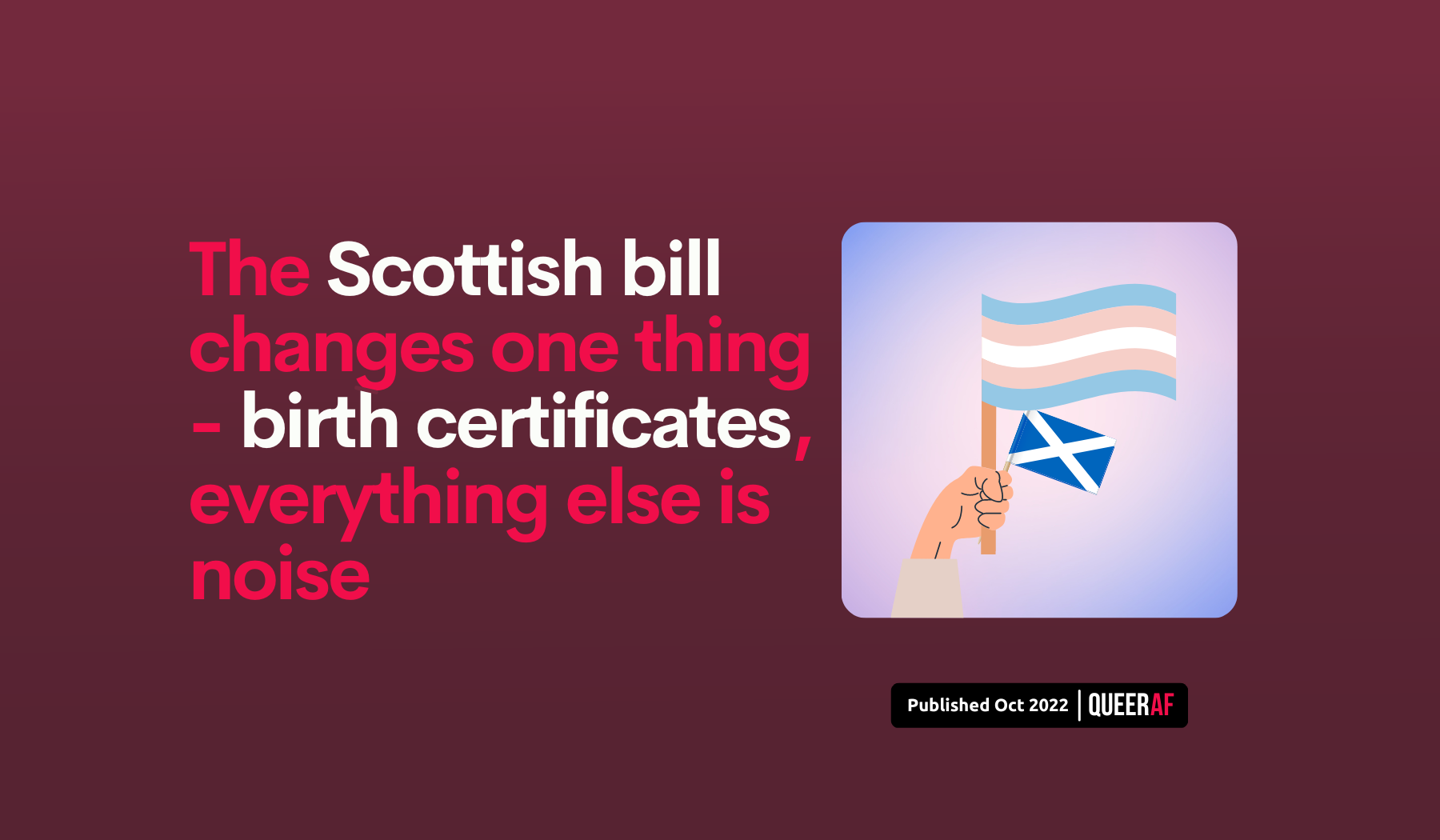
Great Pottery Throwdown winner AJ Simpson, who is non-binary and Scottish, spoke about how the news upset them, highlighting that waiting for a GRC or a gender dysphoria diagnosis can have “a horrible impact on people’s mental health” - OpenDemocracy
At protests in London and Edinburgh, trans activists and allies condemned the government and the Labour party, and called on the community to work for change outside of parliamentary politics.
Activist Alice Martin spoke in London, saying “Brothers, sisters, siblings, it’s time to join your trade union, your tenants’ union, and build power independently.”
Another anonymous speaker said they didn’t care about having a GRC —they just wanted to be able to live in safety and power with their trans and queer siblings.
The lengths the government will go to in their disregard for trans lives are appalling —but they can’t take away our community, our anger, or our joy.

We’re not afraid of accountability. It’s why we became the first, and remain the only, regulated LGBTQIA+ outlet in the UK.
This is our contract with our readers: we will always do our best to uphold the highest standards, and we will make things right where we get things wrong.
The IMPRESS standards code protects the public from the worst practices of the media.
As we set out to model change, we believe this standards code will help create a safer environment for LGBTQIA+ stories in the press. We hope to see more publishers follow suit.
Our audience is our most valuable editor, and giving them ways to have their say is crucial. That’s why our ad-free member-funded model lets you set the agenda.
Have your say, and tell us what content is missing in the rest of the media - because we don’t commission based on ‘what creates clicks’. Everything we do is based on what you say should count.


